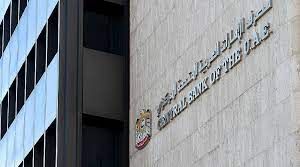The Covid-19 pandemic, that rendered chaos on financial markets last year, has caused increased risk of money laundering, terrorist financing, fraud, cyber attacks, bribery and corruption across the financial system, said the Central Bank of the UAE.
“The use of e-commerce services and virtual currencies for money laundering; corporate fraud schemes, a surge in unlicensed money-service providers, and charity and disaster-related scams are some of the trends that have emerged during the pandemic,” the regulator said in Typologies in the Financial Sector, on Sunday report.
The banking regulator earmarked many financial institutions to observe market activities, asking them to engage with the authorities actively. The risks have already been mentioned in the UAE’s National Risk Assessment and are “likely to be prevalent across the wider financial sector”, the Central Bank said.
“This report is part of our ongoing efforts to address money laundering and terrorist financing-specific trends and typologies emerging from the Covid-19 pandemic in the financial sector,” said Central Bank Governor, Khaled Balama. “Although these risks are still in the early stages of identification, the CBUAE, alongside the concerned supervisory authorities, have released this report as key reference on pandemic-related typologies and indicators to the financial institutions, so they remain abreast of and be able to mitigate these emerging risks, which ultimately contribute to safeguarding the integrity of the UAE financial system.”
The pandemic typologies report has been prepared by the Supervisory Authorities Sub-Committee, chaired by the Central Bank and includes Abu Dhabi Global Market, the Dubai Financial Services Authority, the Executive Office for Anti-Money Laundering and Countering the Financing of Terrorism (AML/CFT), and the UAE Financial Intelligence Unit (FIU).
The UAE has initiated strict measures to tackle money laundering. For this a dedicated agency was set up this year to identify people responsible and suspected of financing terrorists and organised crime. The Central Bank also issues guidelines regularly to help financial institutions assess money-laundering risks. In July, the banking regulator issued guidelines for implementation of sanctions related to AML/CFT. In August, instructions were issued to UAE’s registered hawala providers and financial institutions providing them services.
Earlier this month, the Central Bank made it a requirement for financial institutions, including lenders, to develop internal policies, controls and procedures to manage money laundering risks.
The report will help financial institutions to identify Covid-related risks and device effective methods to mitigate them and help in keeping the financial system healthy. “Criminals who have previously relied on self-executed money laundering schemes may now be seeking the help of PMLs,” the report said.
During the lockdowns as people could not move funds freely, “illicit actors are turning to e-commerce as a money-laundering tool”, the report said. Criminals can use fake digital storefronts to appear as legitimate merchants. They may also use “pass-through companies” or “transaction laundering”, which means illicit businesses can use a legitimate business to process illicit payments. “This is referred to as ‘money laundering of the digital age’, which is extremely difficult for financial institutions to detect,” the report added.
The Central Bank said there has been an increase in the number of “money-mules” which are used to launder ill-gotten funds, a direct implication of financial distress. The use of virtual currencies is also surging during the Covid-19 pandemic, as criminals earning illegal virtual currencies look for ways to convert them into cash or other assets.
“Citizenship by Investment schemes offered by countries located in the Caribbean region pose potential financial-crime risks to the financial sectors in the UAE,” the report said. “Although CBI schemes may be pursued for legitimate purposes, in particular visa-free access to the EU, the UK and other countries, CBI schemes pose corruption, sanction, money laundering and tax-evasion risks.”
The growing dependency on technology and remote working models has also bared open the digital vulnerabilities. This is because rise in phishing attacks, hacking, malware intrusions and fraud based from information breaches containing personal data.
“This is an important factor to address where documents containing confidential customer and/or financial information are shared between staff via a distributed work environment,” the report said. “Organisations should prepare for possible business disruption and proactively assess their cyber-hygiene practices followed by their remote workforce, enterprise-wide.”
 AR
AR UR
UR
